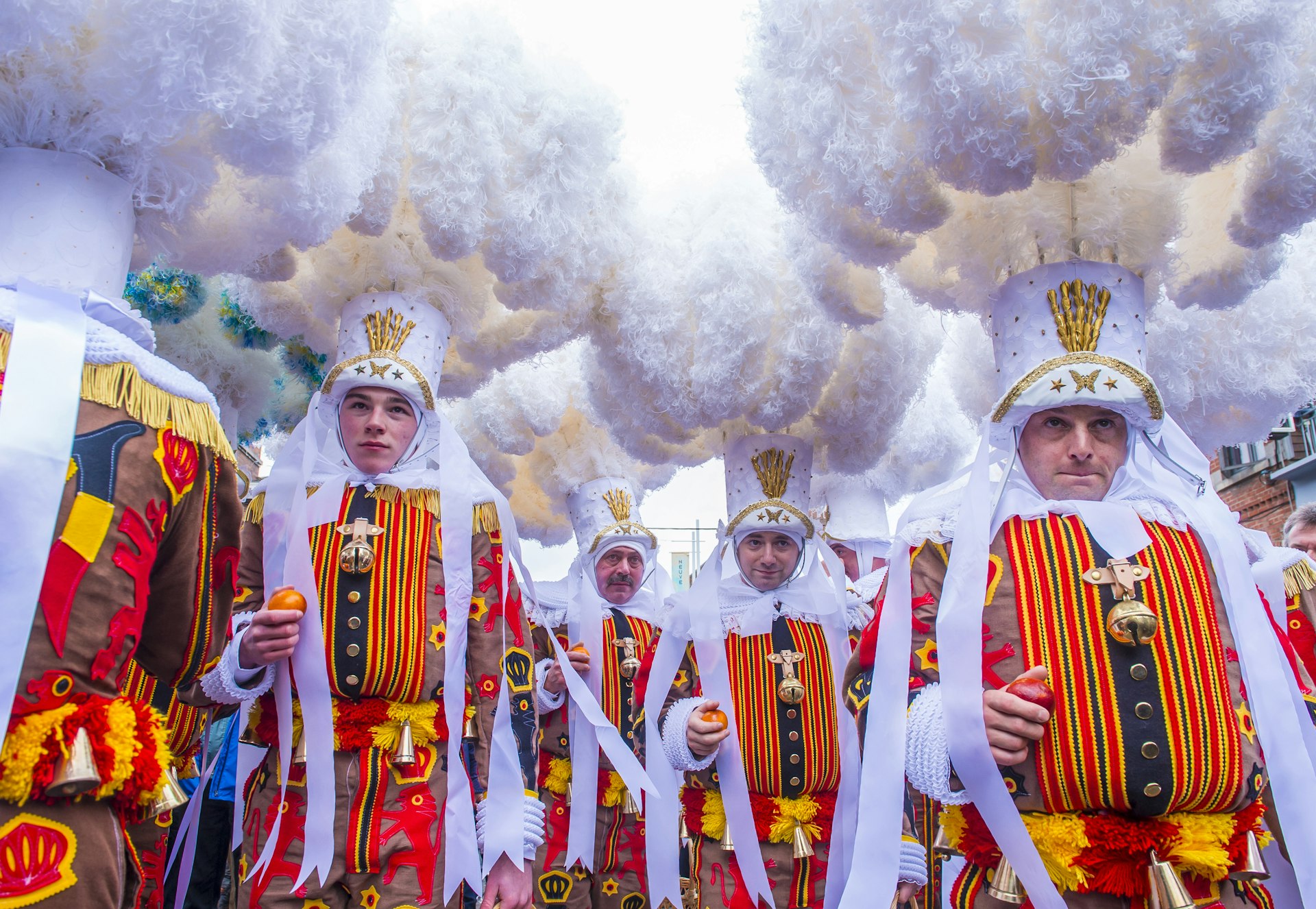Thanks to a rich history of art and architecture, a delightful dining scene and picturesque towns, you can enjoy the best of Belgium in any season — as long as you bring a raincoat or an umbrella.
Summer months are the time for music festivals, culture and togetherness. Belgian nature is at its best during shoulder season. For museums and Christmas markets, come during the winter, and if you’re traveling on a budget, late winter’s your best bet. Choose the right time for your visit with this seasonal breakdown.
Ready to plan your trip? Here are the best places to visit in Belgium
The summer months are best for festivals, beach bars and culture
During the summer months of July to August, temperatures in Belgium can reach a pleasant 20°C (about 70°F). This is also a popular time for domestic and international travelers to the Belgian North Sea coast.
In summer, the beaches of Knokke and Ostend come to life with sunbathers, kite surfers and families looking for a fun day trip.
At the same time, Belgium’s hottest months mark the peak of its renowned music festival season, with multiday festivals like Rock Werchter and Tomorrowland and more intimate events like Cactusfestival and Gent Jazz.
Antwerp in particular is a lively city to visit in August. Highlights include open-air summer bars across the city, Antwerp Pride, and food and drinks festival Bollekesfeest, whose name is a reference to Bolleke, an iconic local amber beer.
Prices during the summer months can get more expensive. Expect to pay upwards of $600 for a round-trip ticket from New York and around $150 from London. A night in a decent hotel room starts at around $120.

April to June and September to October is best for hiking and thin crowds
In the shoulder seasons of spring and autumn, Belgium’s climate is defined by mild days and cool nights. Crowds in the city centers are thinner in comparison to the busy summer months and prices for accommodations are no longer at their peak.
During spring, Brussels makes a strong claim as not only the legislative, but also the cultural capital of Belgium. With more exhibitions, festivals and shows than you can count, there’s something for everyone at venues like La Madeleine (shows from local and international music artists), Bozar (expositions on classical and modern visual art) and Plein Publiek (DJ sets and live music).
Spring also marks the end of the country’s winter slumber. In Hallerbos, a grand carpet of vibrant bluebells bloom in April, drawing visitors from all over the world.
Restaurant and cafe terraces (like Bar Chapel, a converted monastery garden in Antwerp) open up again, giving you the perfect chance to soak up the city’s atmosphere without being overwhelmed by large crowds.
In autumn, the stunning reds, oranges and browns of local foliage turn Belgium — the southern Ardennes region specifically — into an even more magical place to visit. Crowds get thinner while daytime temperatures remain relatively mild.
It’s the perfect time to explore the country’s natural beauty and medieval cities — just don’t forget to bring an umbrella and a raincoat.

November to January is the best time for Christmas markets and museums
During the low season, the weather forecast in Belgium is gloomy, although snow and freezing temperatures are rare. November is a quiet month best enjoyed by exploring the many museums dotted around the country.
In these months, flight prices drop (with return flights from New York as cheap as $300), while hotel prices remain relatively stable.
Highlights include the recently renovated Royal Museum of Fine Arts (Antwerp), Horta Museum (Brussels) and In Flanders Fields Museum (Ypres, open Tuesday to Sunday from 10am to 5pm).
It continues to be wet and cold in December. Still, Christmas markets galore brighten up major cities and lesser-known places with ice skating rinks, mulled wine stalls and delicious sweet treats.
For a grand experience, head to the Antwerp Christmas Market, the Ghent Winter Festivities or Plaisirs d’Hiver in Brussels. Alternatively, spend an evening at a smaller event like the Ostend Christmas Market or Louvain-La-Neige.

Late winter is the best time for budget travelers and carnivals
As a western European country, Belgium is always going to be a relatively expensive place to visit. But if you’re traveling on a shoestring budget, all hope is not lost.
Your best bet is to go between January and March, while the country is recovering from Christmas and New Year’s and daily life slowly gets back to normal. That makes late winter the best time to spot better deals and prices.
In February, carnival celebrations take over the Belgian countryside. But even so, you shouldn’t expect any delays for public transport or disturbances on the road. Hotel accommodations can get more expensive during the carnival season in cities like Binche and Aalst.
The Carnival of Binche is one of Europe’s oldest, with roots in the Middle Ages. During the parade, performers known as Gilles wear elaborate costumes and throw blood oranges at the crowd for good luck.
Meanwhile in Aalst, you’ll find the biggest carnival celebration in Belgium. Carnivalists frolic through the streets with floats that can take the better part of a year to decorate.
And they don’t shy away from controversy: they express their opinion on social themes and current events through their costumes and float decorations.
In 2023, a float showed the city’s mayor as Big Brother; a way for the carnival club to protest his mass use of cameras. Nothing and no one is off-limits.
Traveling Belgium on a budget? Here are our money-saving tips
This article was first published May 23, 2022 and updated May 23, 2024.
